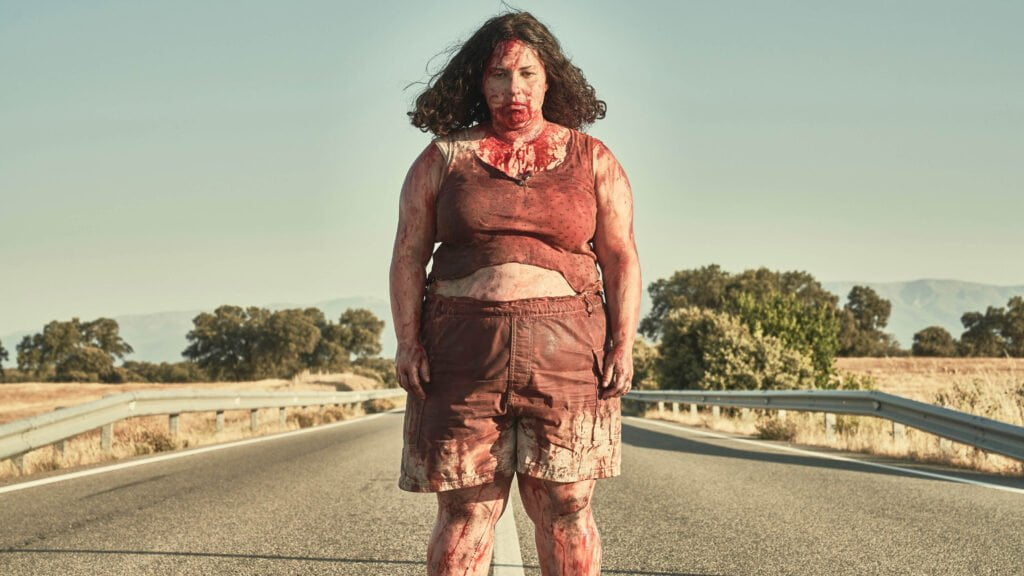Piggy (Cerdita) is an intense, claustrophobic coming-of-age thriller about violence, revenge, and the consequences of cruelty.
The film focuses on Sara, a teenager stuck in a small town who faces intense bullying from her schoolmates because of the size of her body. After a peaceful swim turns into a terrifying attack, Sara is confronted with a complicated, confusing choice. The story follows the ripples of her decisions as she struggles to assert herself. Some scenes cut really deep, especially for anyone who’s ever experienced bullying, and during the screening at Montreal’s Fantasia Film Festival, it felt like the air had been sucked out of the room.
This is the debut feature film from writer-director Carlota Pereda. Her 2018 short film by the same name earned her a myriad of accolades, including a Goya award for best short fiction film. Pereda wanted to tell a story featuring a body type that we don’t usually see as a protagonist, telling Variety, “I’m just so tired of seeing the same things over and over again. I’m just really bored.” She auditioned multiple actresses to find just the right combination of pride, stubbornness, and vulnerability, eventually turning to the theater scene and casting Laura Galàn.
Galàn brings so much to the role of Sara, infusing a mix of simmering rage and abject terror into her performance. She embodies an all too human duality; she may desperately yearn to be independent, but she lacks the confidence and experience to stand up for herself. Though audiences may find it frustrating to watch Sara struggle, Galàn delivers the entire range of human emotion, making her performance nuanced, messy, and real.
Pereda added a layer of budding sexuality to Sara in the adaptation of her short film. The design of her room and wardrobe signal just how young she is, even though she bears the enormous weight of her entire town’s opinions and fears about her body. When Sara first meets someone who likes her for her, we understand the power of that feeling and how incredibly vulnerable that makes her. The camera also emphasizes that sense of vulnerability by looking down at her from a slight angle. Throughout all the terror, the camera stays on Sara in a tight 4:3 aspect ratio, giving the audience nowhere else to look but at our protagonist. We are scared when she is scared, we are angry when she is angry. We exhale when she is finally able to exhale.
A big part of what makes Piggy so scary and thrilling is how Pereda incorporates bystanders into the violence on screen. It’s the microaggressions, gossiping and throwaway comments targeted at Sara’s body and character that contribute to her indecisiveness when faced with more immediate threats, and it’s natural that she doesn’t trust any of the adults to actually help her. Though Sara’s classmates mock her ruthlessly by calling her Piggy, their parents (including Sara’s) are no better, and are often too wrapped up in their own fears and insecurities to understand the harm they cause.
Despite the brutal concept, Piggy has many moments that are uncomfortably funny. Sara is stuck in a small town where everyone knows everything, which is the last place anyone wants to be when they have a secret. She clings to whatever privacy she can get, mostly by shoving a giant pair of headphones over her ears to block out the world. This is a movie that could have been a sweet, quirky slice of life story, were it not for all the blood, violence, and murder.
Piggy never treats Sara’s body as a hindrance. In this movie, her body is able and capable. She seeks redemption not by restricting herself or by being thin but by taking a stand and fighting for her needs. The final act of Piggy is filthy, gory and brutal, but satisfying.
